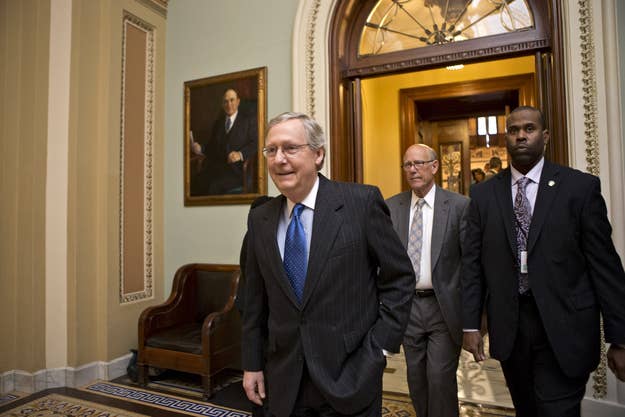
WASHINGTON — In the early hours of 2013, after weeks of negotiations, the Senate voted to approve a compromise fiscal cliff agreement to delay a set of automatic spending cuts for two months and to raise income taxes for the wealthiest Americans, but which left the debt ceiling to be addressed later this year.
Although 89 senators supported the measure, and only 8 voted against it, not one senator seemed wholly pleased with the agreement.
But nearly all those who supported it expressed acceptance of the compromise and relief that one had been approved at the last minute, thus taking a first legislative step toward averting a rash of tax hikes and spending cuts that could throw the economy into another recession.
“Do we feel great?" posed Democratic Sen. Barbara Mikulski. She paused. "We feel that we did our duty.”
"I think the U.S. Congress missed an opportunity overall to do the type of bargain we could do in this circumstance," Sen. John Kerry, the nominee to succeed Hillary Clinton as secretary of state, added. But, he conceded, given the arc of negotiations, "This is the best deal that you could get."
Democratic Sen. Sherrod Brown, who, earlier, had met with Reid in his office over concerns about the emerging deal, evolved during the course of the day and night: Ultimately, he voted in favor of the measure.
Across the aisle, Republicans were similarly ambivalent: Pleased by their minor victories in pushing for a two-month extension of the sequester and a lesser estate tax, while sobered by the reality that taxes would rise for income exceeding $400,000 for individuals and $450,000 for couples.
Nevertheless, GOP senators expressed confidence that House Republicans would accept the deal as is.
“I hope they will understand that if we don’t do something, everyone’s taxes will go up," said Republican Sen. Lindsey Graham. He added, "This is the best a conservative could do."
It's not entirely clear whether the House will accept that argument. During the payroll tax debate in 2011, an agreement was approved by the Senate by a similar margin — and still failed to pass in the House.
But even as 89 senators voted to support the measure, there were some notable holdouts in both parties — including Republican Sen. Marco Rubio, who said he "just couldn't vote for" the compromise.
"I ran for office because I wanted to be a part of solving these big problems, and time and again we're faced with options here that don't really do that," he said.
"The real fiscal cliff is the one that awaits us, and nothing happened tonight to avoid that.”
